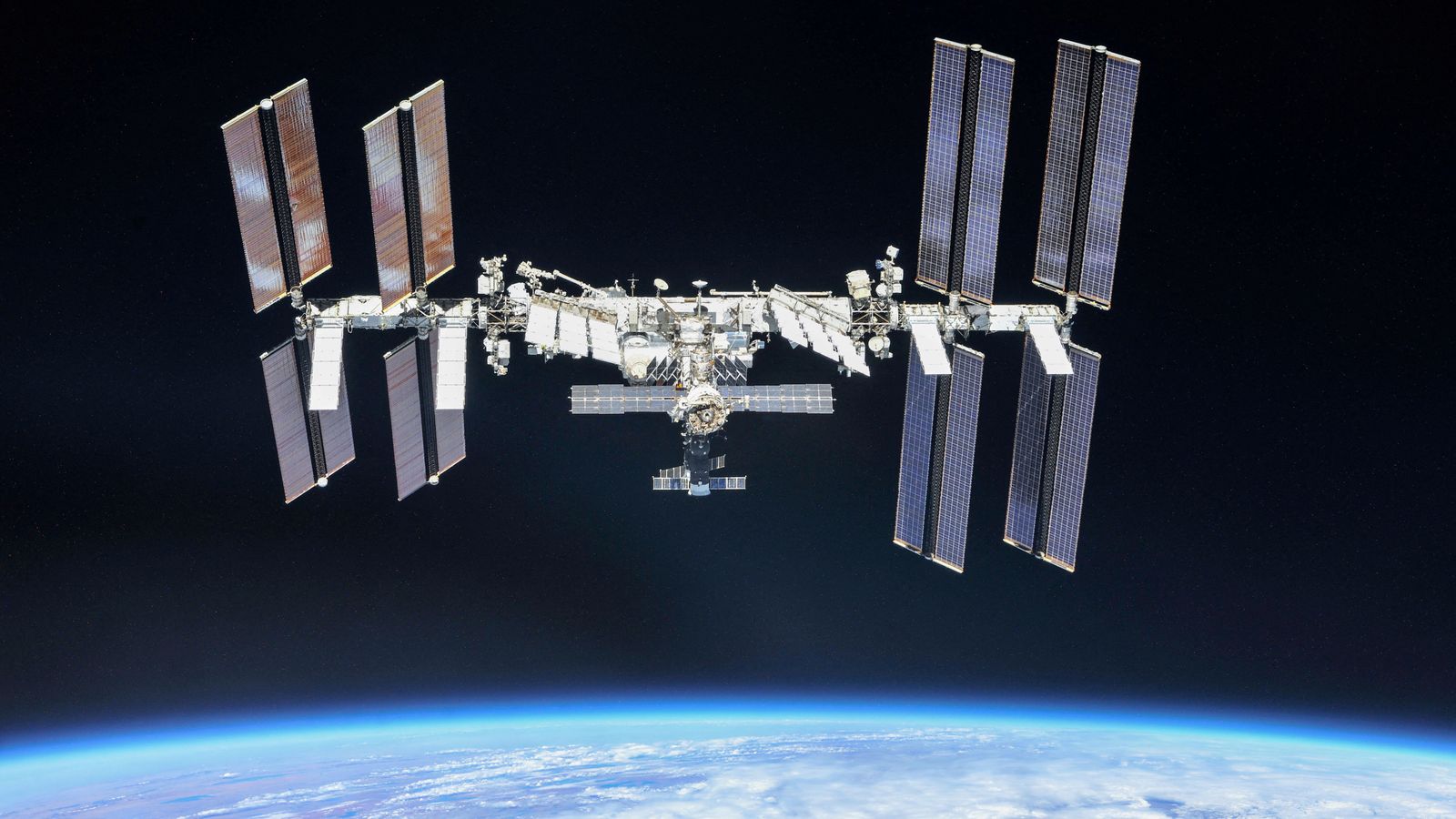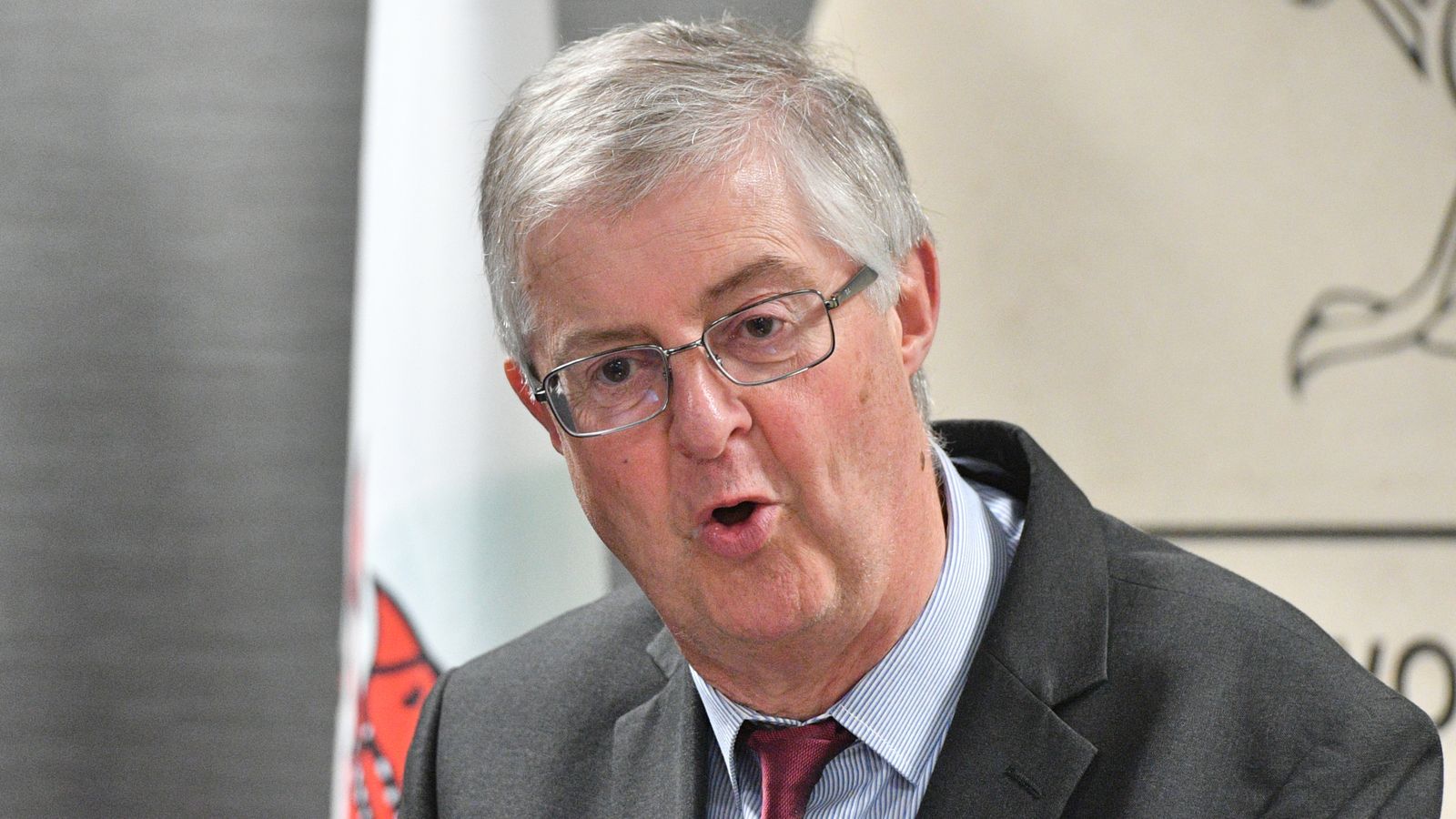No orbital space mission has ever been launched from the European continent, but a surge in private sector rocket companies means that is likely to change very soon.
The advantages for the winner could be enormous. At a time when investment in space business is expected to grow by more than 5% a year, establishing the first operational spaceport on the continent could win a lot of business.
Numerous competing spaceports are being developed across Europe and even within the UK, with a potential launch from Shetland later this year among the contenders for the first to cross the line – helped by a Ukrainian-born entrepreneur and about 80 staff in the country.
Bodies laid out on pavement as Kyiv shopping centre hit – Ukraine war latest updates
The UK Space Agency has provided more than £40 million to the industry to develop Britain’s spaceflight capabilities, a good chunk of which has gone to the SaxaVord spaceport on the Shetland Islands.
Hoping to launch both Britain and Europe’s first ever orbital mission from there later this year is Skyrora, an Edinburgh-based company founded and led by Volodymyr Levykin, a Ukrainian-born Briton.
Skyrora aims to launch a satellite of between 315kg and 500kg into a sun-synchronous polar orbit, meaning the satellite would pass over the poles and then each spot on Earth at the same local time of day – ideal for imaging satellites.
Ukraine war: British-built rover launch to find life on Mars delayed over ‘impossibility’ of working with Russia
Space: One giant leap forward for oxygen-hunting robots and power stations of the future
Space investment trust Seraphim blasts off with plot to raise new funds
Mr Levykin, who moved to the country “about 13 years ago”, told Sky News the Shetland site is “one of the best in Europe” because it offered clean launch trajectory without passing over foreign territory.
It isn’t “perfect” due to the weather conditions, he acknowledged with a wistful reference to Florida, but it is no worse than rival sites in Alaska, Norway and Sweden.
“There are a number of countries right now in the game, in the new space race as we call it,” he said.
Skyrora has three competitors in Germany that “are moving quite fast, and are very well-financed, and they have good government support”, said Mr Levykin.
But at the moment the UK is the more advanced. Last year the government introduced space industry regulations that license spaceport operations and permit launches.
“If we’ll be the first and we win the new space race, we have a very good chance to actually be the space hub of Europe,” Mr Levykin added.
About half of the company’s 160 staff are based in Dnipro in Ukraine, which was formerly known as Dnipropetrovsk during the USSR era and was the heart of the Soviet Union’s rocket programme.
Skyrora’s manufacturing and test facilities are all in the UK – with one for testing engines opening in a retired quarry earlier this week – but staff in Ukraine help with developing techniques, alongside back office operations, supply chain and accounting work.
“The war has a huge impact on everyone. There are no exceptions,” Mr Levykin said, with some staff fleeing due to the invasion.
It was mainly female employees and those with three or more children who have left Dnipro to work in the west of Ukraine, he said, though the majority of staff have remained.
Martial law has also added some additional difficulties.
“People understood that the best way to cope with the stress is to work and work hard, especially while it is still possible to work, while it’s still safe.”
Keeping work going is essential to keeping Ukraine’s economy functioning, Mr Levykin said – and noted how valuable satellite images were in providing geospatial intelligence about Russian military movements around Ukraine.
“It just my theory that the new space satellite companies are playing a big role in this war. The new generation of privacy space companies focused on Earth observations – with a primary goal of helping to fight climate chnage – this data is actually widely used to analyse the war zone situation.”








